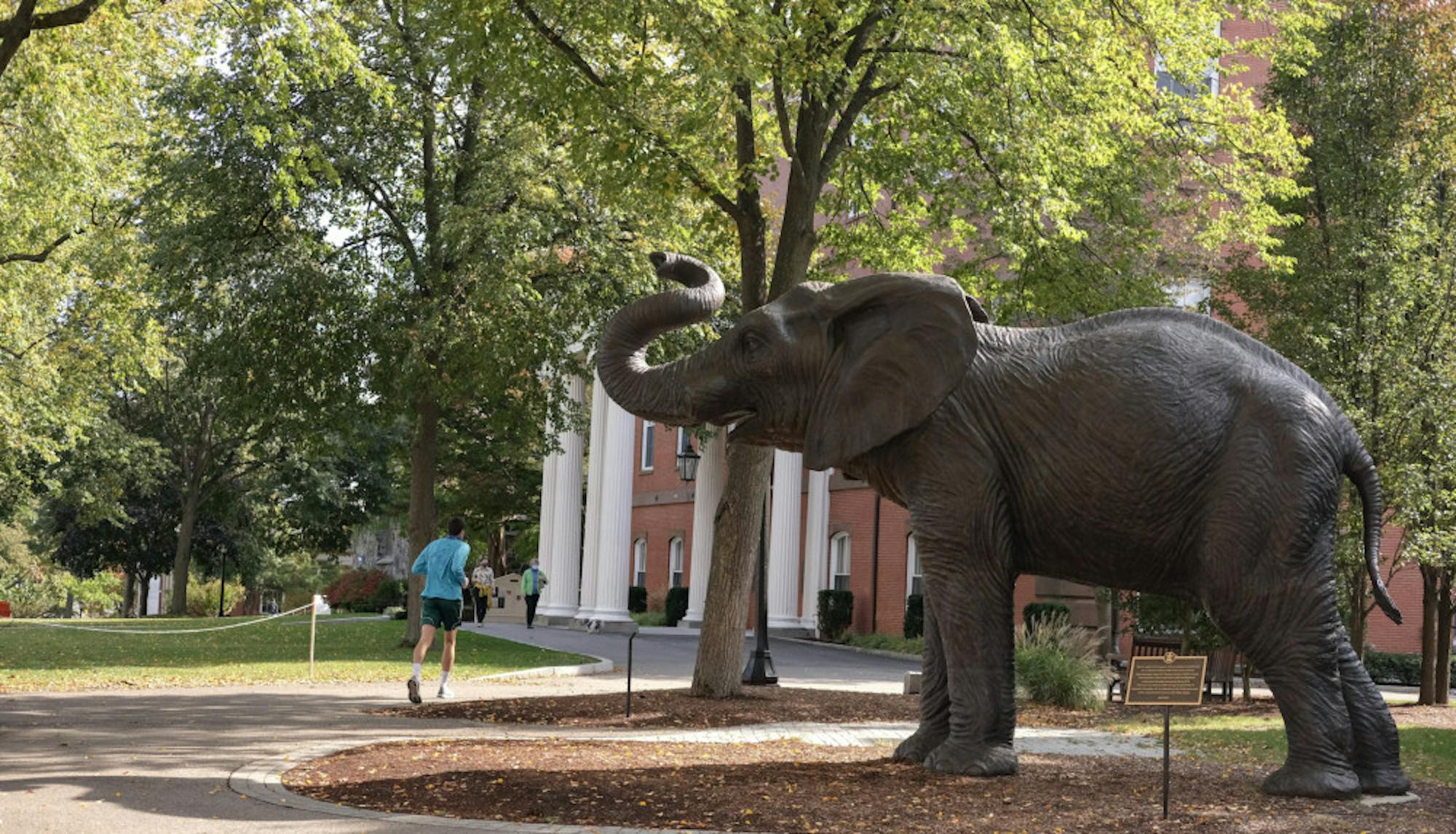Disclaimer: Hana Tzou is an assistant copy editor at The Tufts Daily. Hana was not involved in the writing or editing of this article.
Tufts ranked 28th on the 2022 U.S. News & World Report Best National University ranking, rising two positions from the 2021 list.
The annual rankings, which were released on Sept. 13, assess 1,466 U.S. bachelor’s degree-granting institutions and factor in 17 different academic measurements. These include graduation and retention rates, social mobility, undergraduate academic reputation and student selectivity. Factors such as student life and sports are not considered.
At 28th place in the ranking, Tufts is tied with New York University, University of California Santa Barbara, University of Florida, University of North Carolina Chapel Hill and Wake Forest University.
“Overall, Tufts University’s place in the U.S. News rankings has remained stable for nearly two decades, with small positive and negative annual fluctuations, placing us consistently in the top tier of national universities,” Dean of Admissions J.T. Duck wrote in an email to the Daily. “Due to ties at certain spots on the rankings, our place has effectively remained unchanged over the years.”
The impact of the pandemic on Tufts and higher education institutions in general is not yet fully apparent in the rankings. Though they are published for the 2022 admissions cycle, and include information from 2021 on factors such as tuition and fees, the standardized test score ranges reflect admissions data from 2019 and 2020.
“Notably, SAT/ACT scores mostly reflect a test-taking period from 2019 to early 2020, before the effects of the coronavirus were felt in the United States,” U.S. Newssaid on its website. “Nonetheless, to account for the disruption to higher education due to the ongoing pandemic, we slightly adjusted how we assessed SAT/ACT scores and made greater use of historic data for a few of the other ranking indicators.”
It is typical for U.S. News to make slight adjustments to its scoring system year to year. These adjustments, Duck said, may have contributed to Tufts’ slight rise in the rankings.
“It’s hard to say what causes a fluctuation in any given year because U.S. News makes changes to the underlying algorithm from year to year,” Duck said. “Because of the stability of our rankings, these minor fluctuations don’t have an impact on our ability to recruit talented and compelling students. For example, last year our ranking fell slightly but our applications rose 35 percent.”
Hana Tzou, a tour guide for Tufts Admissions, said that prospective students typically don't ask questions about or mention U.S. News rankings on tours.
“The rankings are probably low on the list of reasons to apply to or choose a college,” Tzou, a junior, wrote in an email to the Daily. “I personally didn’t care one bit about the rankings when I was applying, and I certainly don’t care now.”
For some, however, ranking does play a role in their college decision process. Callum McRavey, a sophomore, used the list to compare schools and gauge factors such as selectivity as they applied to colleges.
“I specifically looked at U.S. News and it did end up mattering a decent amount when I was applying,” McRavey said. “I placed a lot of value in them — probably more than I should have.”
Now, as a student, McRavey doesn’t consider the ranking to be a reflection of their experience at Tufts.
“I really don’t think about rankings at all anymore,” they said. “There’s nothing about the ranking that inherently gives value to a school, so I don’t check anymore."
Duck said that the admissions office tries to foster this attitude among prospective students.
“Rather than focus on rankings, our Admissions team actively encourages prospective students and their families to consider ‘fit’ as the most important criterion in their college search,” he said. “The most important thing is for a student to pick the best college for them, not the college deemed to be best by a rating organization.”
Tzou said that rankings are too broad to indicate whether a particular school will be a good fit for an individual student. She suggested that factors such as student life, financial aid and academic and study abroad programs likely matter far more to applicants.
“Where Tufts, or any university, is on the list has no relevance to a student’s individual experience at that school,” she said. “The issue with these rankings is that they are completely statistical and probably won’t give you any indication as to whether or not you’ll be happy at that school. I think prospective students understand this.”






